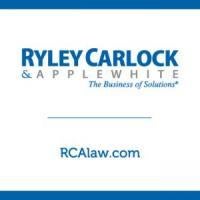Case Could Also Help Other Industries Defend Against Government Litigation
When it comes to the False Claims Act, the government usually wins, but a recent decision should provide the healthcare industry with a rare sigh of relief. The opinion in United States v. AseraCare Inc.1 acknowledges the importance of a doctor’s clinical judgment and establishes the need for objective evidence before the government can overcome a doctor’s medical opinion in a False Claims Act lawsuit.
If you bill the federal government, you had better be aware of the FCA.
Anyone doing business with the government knows—or should know—about the False Claims Act (“FCA”). Put simply, the FCA punishes people who knowingly present a false claim to the federal government for payment. This Civil War-era law earned the United States almost $3.6 billion in settlements and judgments in 2015.2 Healthcare companies are especially at risk for FCA litigation because healthcare is so heavily regulated: almost two billion of those dollars came from the healthcare industry in 2015.
The consequences of an FCA lawsuit can be dire. An offending company can owe the entire amount that it was paid under its contract as damages, which the FCA then trebles. Further, the FCA imposes mandatory civil penalties of $5,500-$11,000 per false claim submitted.3 For healthcare providers that annually submit tens of thousands of claims to Medicare and Medicaid, those civil penalties can dwarf the “damages” arising out of the contract.
U.S. v. AseraCare
On its face, the recent AseraCare case was relatively uncomplicated, at least for a healthcare case. The government claimed that AseraCare, a hospice provider, was falsely certifying patients as hospice-eligible (i.e. that the patient had six months or less to live) and then billing Medicare for hospice services. The case was shaping up to be the largest FCA case against a hospice provider in history: if the government won, it stood to recover more than $200 million in damages and penalties.
What makes this case different from others is that the government did not allege that AseraCare was forging signatures or falsifying charts (often the basis for FCA suits), but only that the hospice doctors got the eligibility decisions wrong. The government’s only evidence of the patients’ unsuitability was its own expert who had subsequently reviewed the charts and decided that the patients were not hospice-eligible. Essentially, the government’s entire case was based on a retroactive, Monday-morning quarterback’s review.
In her opinion, Chief Judge Bowdre said that a difference of opinion among doctors could never—as a matter of law—be enough to establish falsity under the FCA. Medical prognoses are not an exact science, she noted, and two doctors could review the same chart using their clinical judgment and come to two separate conclusions. In fact, the government’s own expert changed his conclusions regarding the same patients’ eligibility between a 2010 chart review and a second review in 2013, but still testified that both conclusions were accurate. “The reason for the change of opinion: ‘Well, I was not the same physician in 2013 as I was in 2010.’" Id. at *3. Given the extent to which reasonable minds could differ—or even the same mind on two different occasions—the court held that a disagreeing medical opinion could never be enough evidence on its own to survive a motion for summary judgment in an FCA suit and so dismissed the case.
So does this ruling make a doctor’s opinion untouchable?
Not exactly. All this case says is that one medical opinion can’t prove that another medical opinion is false unless it’s backed up by more evidence. If the government in AseraCare had presented any hard evidence of improper diagnoses, the case would not have been dismissed. And what if the government had based its case on not merely one opinion, but ten other doctors all agreeing that the hospice doctors were wrong? Would that have been enough evidence for the government to survive summary judgment?
It’s not clear how precedential this opinion will be. The government might win on appeal or courts may decide that this case is only relevant to hospice-eligibility cases.
On the other hand, court decisions are rare in FCA cases because most defendants choose to settle rather than risk an eight-figure verdict. If courts adopt a broader reading, AseraCare could be a real boon to the medical industry for any FCA lawsuit that revolves around a medical opinion. AseraCare’s reasoning might reach even more broadly to non-medical cases that also turn on a professional estimation.
The Bottomline
In the end, this case is a win for FCA defendants because it requires the government to produce more evidence to prove its case. And given the massive potential for damages under the FCA, any company that does business with the government—healthcare or otherwise—should keep the AseraCare opinion in mind when it evaluates its FCA liability.
1United States v. AseraCare Inc, 2:12-CV-245-KOB, 2016 WL 1270521 (N.D. Ala. Mar. 31, 2016).
2And 2015 was a down year—the U.S. took in $5.7 billion in FCA recoveries in 2014.
3These numbers will increase in the next few months thanks to recent legislation, perhaps to as much as $18,600 per claim.




 i
i


